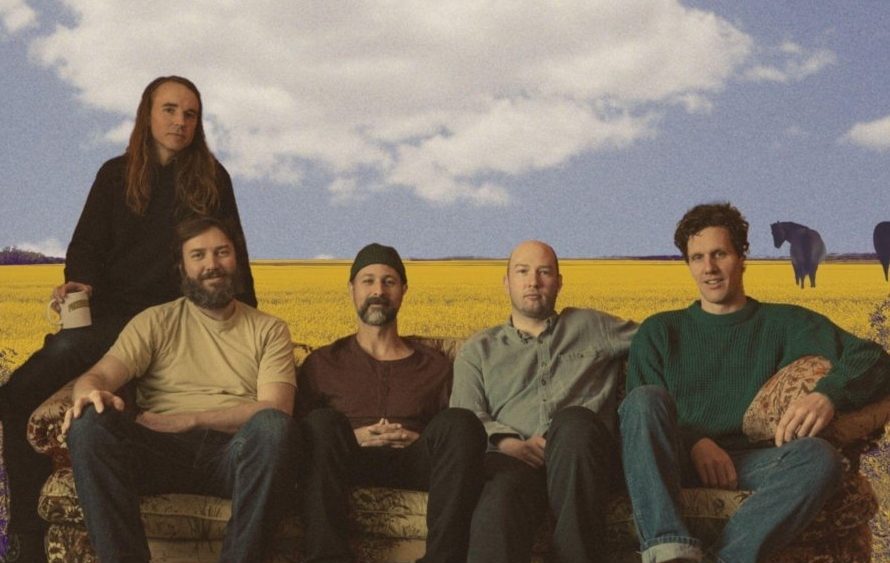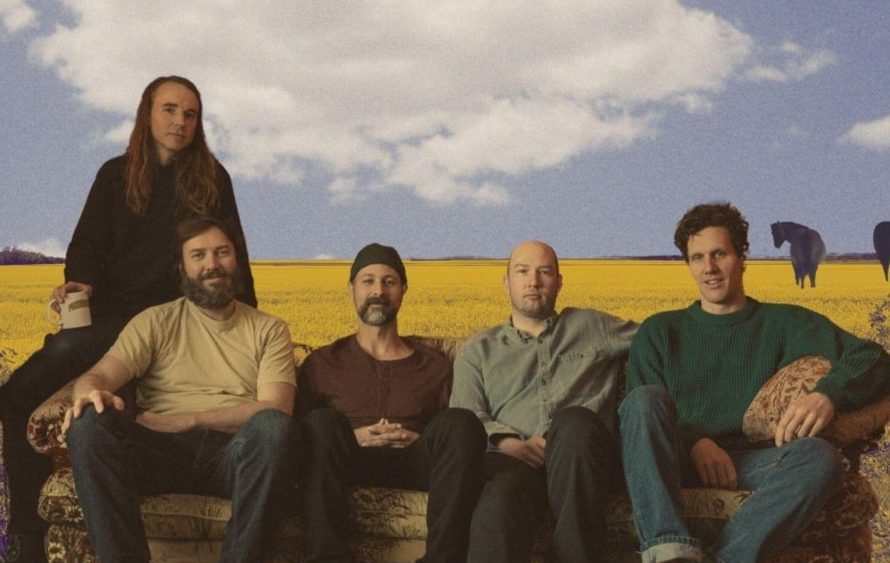
Andy Shauf was making a disco record.
It was quite a curveball from the Canadian folk artist, whose music is often defined by its rich storytelling and warm acoustic guitars.
“Then the pandemic hit, and I quit drinking. It caused me to take stock of my life,” Shauf says. “When I listened to it with my new clear head, I was like, ‘I don’t know what I’m doing right now.’”
At the same time, he had recently holed up in the studio with his band, Foxwarren, to write a follow-up to their ethereal, self-titled 2018 debut. They sought out to make an organ-forward album à la the Band, and they recorded five demos.
Popular on Variety
“They were very flat-sounding,” Shauf says. “We went away from that session, and I was pretty confused.”
So Shauf started over, twice, scrapping both albums and deciding it was finally time to compromise on his commitment to analog instruments. “I’m a rock and roll traditionalist,” he admits. “But it started to feel like such a strange limitation to be putting on myself.” He bit the bullet and bought a digital synthesizer and sampler, vowing to make one album with each. The synth record became “Norm,” his delicate, unnerving 2023 entry, and the sampler yielded Foxwarren’s sophomore album, “2.”
It was unlike any record Shauf had made before. Rather than get back into the studio with fellow Foxwarren members Dallas Bryson, Avery Kissick, Darryl Kissick and Colin Nealis, the band started a shared, digital folder. Spread out in home studios across Canada, they uploaded song ideas, loops, melodies and rhythmic patterns, as Shauf used the sampler to cut up the pieces and string them together. Sometimes they’d each run with a song as far as they could before handing it off to someone else, like a relay race.
“I would upload a song, and someone would be like, ‘I hear a guitar chord,’” Shauf says. “They would download the session, tweak it, reupload it.” The result was a folk-rock album composed in the style of hip-hop or dance music.
The hardest part of long-distance music production is the lack of immediate feedback, Shauf says. In the studio, a bad idea can be put out of its misery within a few minutes. In isolation, a bad idea can be tinkered with for days before it reaches another set of ears.
“If you don’t have someone there telling you to try something else, you will try for days on something, and it will become precious to you,” Shauf says. “Then you upload it, and very quickly someone will tell you what’s wrong with it. It’s frustrating.”
While Shauf’s solo records are highly conceptual — 2016’s “The Party” takes place over one night, with specific incidents described by different narrators — Foxwarren’s self-titled debut was intentionally opaque. The band wrote lyrics by passing around a sheet of paper, eluding any sense of individual authorship. On “2,” Shauf was able to “sneak in” some story, chronicling the dissolution of a relationship through stories, and then memories, of a romance. The songs are tied together by dialogue from an old movie, but Shauf would rather the sample remain a mystery. “I’m not really, like, allowed to say where it’s from,” he says, smiling.
Also in contrast to the first Foxwarren album, “2” has a groovy buoyancy defined by slick bass lines and punchy guitars. Take “Deadhead,” which opens with a snappy funk riff, is driven by a steady bass line and infuses the flute into a chorus that goes, “Won’t stop dancing, won’t stop dancing.” On “Dress,” Shauf transposed the lyrics and melody of one of his axed disco songs onto a totally new harmony — a “happy accident,” he calls it.
“We were proud of our first record, but we know it’s a very sleepy record,” Shauf says, “and that was something we really wanted to avoid this time around.” They wanted, in the words of drummer Avery Kissick, to make a record that sounded good blasting from the speakers of a passing car.
Foxwarren will launch a tour in August, which means Shauf and co. will have to reverse-engineer these songs in a live setting. They’ve begun rehearsing, but still Shauf wonders, “How the hell are we going to pull this off?”
He’s excited to reunite with his bandmates. “That’s the thing we really missed while making the record, is being together,” he says. “It’s going to be pretty special playing these songs, especially if we can figure out how to feel like we’re not just pressing buttons to make sounds.”
This post was originally published on this site be sure to check out more of their content.





